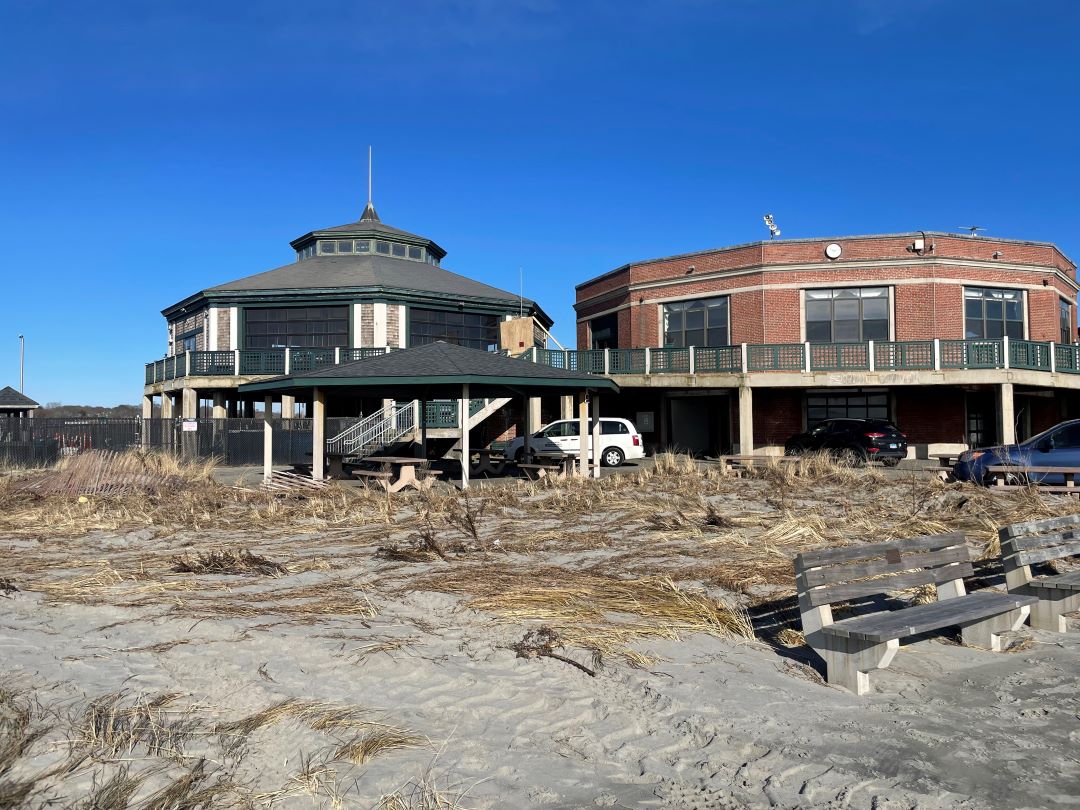Local and National Efforts Underway to Expose Climate Deniers
Well-paid front groups lobby Congress to oppose climate legislation, spread false information about climate science, and run advertising campaigns that boost the image of fossil fuels
January 3, 2019
TV ads spinning a positive message about fossil-fuel companies are running more frequently as climate change is poised to move into the legislative spotlight now that Democrats have taken control of the U.S. House of Representatives.
Recent commercials by the ExxonMobil Corp. show millennials in lab coats, waiting tables, and welding pipeline tubes: jobs that are ostensibly created by the fossil fuel-extraction industry. Missing are the health and environmental impacts of oil spills and natural-gas leaks, acidifying oceans, and displacement and destruction caused by powerful storms — all of which are the result of drilling, shipping, processing, and the burning of fossil fuels. This new PR blitz is the latest action in a decades-long offensive to counter the science proving that fossil fuels are destroying the planet.
A project led by the Climate and Development Lab at Brown University intends to investigate and parse this feel-good narrative by uncovering the people and money behind the climate-opposition social movement. The research aims to make known the billions spent on public relations firms by ExxonMobil and other energy companies to obscure what they have known for decades: that fossil-fuel emissions are destructive.
“This really is a failure to warn us that (fossil-fuel companies) know their products are going to cause all of these problems but they are not warning the public about it,” said Robert Brulle, a visiting professor at Brown University and one the leading national researchers on climate-change denialism.
One of the goals of the investigation is to bring to the fore the campaign of denialism and the accompanying disinformation funded by fossil-fuel corporations, utility companies, and right-wing policy groups.
“They are selling us the idea of oil, prosperity, and fossil fuels are all the same thing,” Brulle said. It’s “a very, very subtle manipulation that runs into the billions of dollars over decades.”
Sen. Sheldon Whitehouse, D- R.I., has been broadcasting the issue from the Senate floor since 2012 with his Time To Wake Up speeches. But without hearings or other public debate led by Congress, climate-change legislation has been suppressed by intimidation, political contributions, and a mass media-marketing campaign to discredit the science.
“The biggest gap that we have on a pathway to success on climate is our failure to have shown the public who’s behind the curtain on so much of the nonsense that gets propagated as climate denial,” Whitehouse said.
Whitehouse is part of the multifaceted effort to out the climate-denial network and its funders. This includes a forthcoming book, new research, and legislation.
In Washington, D.C., Whitehouse and Rep. David Ciciliine, D-R.I., have introduced an updated version of the proposed Disclose Act, which prevents corporate donors from hiding their campaign donations in shell corporations. Whitehouse said making public such donations will cause the collapse of “the special interest hiding systems” and “laundering systems.”
“The dark money disappears when it’s required to become transparent,” he said. “It’s like when you flip on the light and the cockroaches scuttle for the shadows.”
At Brown University, Caroline Jones, a fourth-year student, wrote a 37-page report on the fossil-fuel spin apparatus with a team of classmates, Brulle, and professor J. Timmons Roberts. Jones delivered her findings to the Climate Action Task Force in the U.S. Senate.
“A lot of these groups engage in pretty blatant public misinformation campaigns,” Jones said. “They run targeted strategies to specific demographics, to people who they think are vulnerable to misinformation.”
During a recent meeting with members of the media, Jones, Roberts, and Brulle presented slides showing the complex network of companies, public-relations firms, lobbyists, and bogus environmental groups that spread climate disinformation. Brulle’s research dates back until 1967 and his current work focuses on the years 2010 to 2015.
The spider web of money comes from oil and gas companies such as Shell, Chevron, ExxonMobil, and Texaco; from automakers such as Ford and General Motors; and from utilities and chambers of commerce. They fund groups such as the National Coal Association and the American Petroleum Institute (API), and “astroturf” denialist groups with ambiguous names such as Global Climate Coalition and the Cooler Heads Coalition.
The report Countermovement Coalitions profiles these groups and explains how they create the appearance of public support for deregulation, while also reminding politicians that they may lose election/re-election by opposing corporate priorities.
In Rhode Island, the report looks at the institutions that have resisted climate and renewable-energy legislation. National Grid has been one of the top opponents to legislation endorsed by the Environmental Council of Rhode Island, a coalition of 60-plus environmental groups. National Grid opposed seven bills that supported renewable energy and action on climate change in the General Assembly between 2012 and 2017, according to the Climate and Development Lab.
The state’s primary electric and natural-gas utility also donates to the national anti-climate group Edison Electric Institute (EEI). The organization has opposed — or funded groups that oppose — net metering, one of the core renewable-energy policies that allow homes and businesses to sell excess solar energy to the power grid. EEI officials also question whether climate change is manmade.
The trade association of U.S. electric utilities works closely with the American Legislative Exchange Council (ALEC), the conservative policy group with massive influence in state legislatures. ALEC is funded by climate deniers like the Koch brothers and Koch Industries. Among its initiatives, ALEC has pushed President Trump to rollback climate regulations and open public land to fossil-fuel and mineral extraction.
The Energy Council of Rhode Island (TEC-RI) also opposed seven climate and renewable-energy bills proposed at the Statehouse between 2012 and 2017. TEC-RI lobbies on behalf of the state’s largest electricity users and manufacturers. Other opponents of climate and energy legislation include the Greater Providence Chamber of Commerce, the Rhode Island Public Expenditures Council (RIPEC), and the Rhode Island Building and Construction Trades Council.
National Grid confirmed that it continues to be a member of EEI. In response to the groups connection to ALEC and its front groups and opposition to climate legislation, National Grid said, “We as a company support the science of climate change.”
Spokesman Kevin O’Shea noted National Grid’s backs the nine-state Regional Greenhouse Gas Initiative, the nation’s first cap-and-trade program. He said National Grid also endorses the Paris Climate Accord’s Clean Power Plan. O’Shea also cited National Grid’s involvement with the Block Island Wind Farm and touted a corporation plan to cut greenhouse-gas emissions 80 percent by 2050.
EEI also has financial ties to groups fighting climate-change regulations, such as the Coalition for Affordable and Reliable Energy, the Global Climate Coalition, Alliance for Climate Strategies, and the Alliance for Energy and Economic Growth.
According to research by Brulle and Jones, most of these denial group share staff. They lobby Congress to oppose climate legislation, spread false information about climate science, and run public-relations and advertising campaigns that boost the image of fossil fuels.
Jones studied 12 front groups that spread climate denialism, four of which received money from EEI.
“The leaders in many of these denial coalitions have held highly influential positions in the Republican party and some are now in positions in the Trump administration with direct control over the future of U.S. climate and environmental policy,” according to their research.
EEI has contributed to the Global Climate Coalition (GCC) and the Competitive Enterprise Institute (CEI). In 2016, a CEI official managed Trump’s transition at the Environmental Protection Agency. The GCC was a key player in rejecting the Kyoto Protocol and spread false narratives about the effects of carbon dioxide.
Jones’ research paints an unflattering history of the astroturf groups, showing how they disbanded after bad publicity only to reform under new names.
“They are all funded by the same people, a lot of them have the same leadership and membership,” Jones said. “They’re run out of the same offices, often times. And they engage in really slimy tactics to get their message across and to manipulate public opinion.”
Groups such as the Information Council on the Environment (ICE) received funding from EEI to support one of the first multi-media efforts to cast doubt on climate change. The effort relied on dubious climate experts to sow doubt about global warming through TV appearances and opinion pieces in newspapers in select cities and towns. Although ICE had a brief existence, it created a model that is used by many anti-climate networks today.
The denial groups use these tactics to turn their economic capital into cultural and political capital. Anti-climate corporations outspend environmental groups 20 to 1.
“When you have multiple voices and multiple media outlets, if you can come in there with a big swath of money and push it across all of these outlets all the time that gives you an enormous advantage,” Brulle said. “If you’ve got a megaphone that can just drown people out, what does that say about democracy?”
Categories
Join the Discussion
View CommentsYour support keeps our reporters on the environmental beat.
Reader support is at the core of our nonprofit news model. Together, we can keep the environment in the headlines.
We use cookies to improve your experience and deliver personalized content. View Cookie Settings



